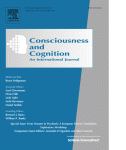A grammar of action generates predictions in skilled musicians
 The present study investigates shared representations of syntactic knowledge in music and action. We examined whether expectancy violations in musical harmonic sequences are also perceived as violations of the movement sequences necessary to produce them. Pianists imitated silent videos showing one hand playing chord sequences on a muted keyboard. Results indicate that, despite the absence of auditory feedback, imitation of a chord is fastest when it is congruent with the preceding harmonic context. This suggests that the harmonic rules implied by observed actions induce expectations that influence action execution. As evidence that these predictions are derived at a high representational level, imitation was more accurate for harmonically incongruent chords than for congruent chords executed with unconventional fingering. The magnitude of the effects of context and goal prioritization increased with musical training. Thus, musical training may lead to a domain-general representation of musical grammar, i.e., to a grammar of action.
The present study investigates shared representations of syntactic knowledge in music and action. We examined whether expectancy violations in musical harmonic sequences are also perceived as violations of the movement sequences necessary to produce them. Pianists imitated silent videos showing one hand playing chord sequences on a muted keyboard. Results indicate that, despite the absence of auditory feedback, imitation of a chord is fastest when it is congruent with the preceding harmonic context. This suggests that the harmonic rules implied by observed actions induce expectations that influence action execution. As evidence that these predictions are derived at a high representational level, imitation was more accurate for harmonically incongruent chords than for congruent chords executed with unconventional fingering. The magnitude of the effects of context and goal prioritization increased with musical training. Thus, musical training may lead to a domain-general representation of musical grammar, i.e., to a grammar of action.


